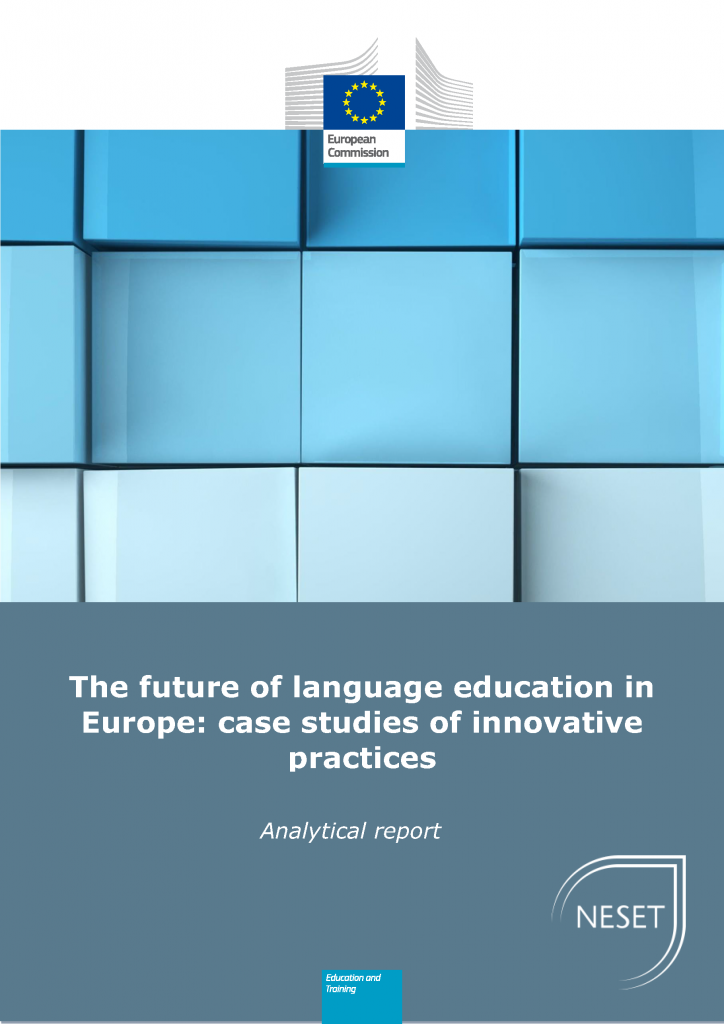The second webinar of the series, entitled "Innovative language teaching methods, and school networks and labels as ways to promote multilingualism and language education", took place on June 25, 2020. It was attended by Gisella Langé (CertiLingua Network), Ellen-Rose Kambel (Rutu Foundation), Audrey Rousse Malpat (University of Groningen), Jim Cummins (University of Toronto), and moderated by Kristina Cunningham (DG EAC: European Commission).
Many studies suggest that the capacity of today’s complex and fragmented education systems to learn and share knowledge is an important enabler for the spreading and sustaining of innovations in teaching and learning. Working in connection with diverse networks of schools and professional learning communities can help to build innovative learning environments and teaching practices. This is also true for language education. School networks and partnerships can promote collaboration in the development of plurilingual pedagogies, while also encouraging knowledge exchanges and networking among teachers and other educational stakeholders.
How such cross-border networks and partnerships foster plurilingualism and systematically promote an inclusive, multilingual ethos across systems will be explored in this webinar. We will talk about two inspirational examples of school networks and labels – CertiLingua and Language Friendly School, as well as reflect on innovative language learning methods (such as AIM), which can be promoted through such networks.
Gisella Langé specializes in curriculum development, intercultural education, language learning solutions, and web-based teacher training. Alongside acting as Foreign Languages Inspector with the Italian Ministry of Education, she has extensive experience of working as an expert on European Commission and Council of Europe assignments. Most recently this has involved advising on the 2024 OECD/PISA Foreign Language Assessment Framework design, and Eurydice Key Data on Teaching Languages at School in Europe. She is a member of the international CertiLingua Steering Committee and the President of the Italian CertiLingua Evaluation Committee. She has also been instrumental in the realization of innovative language learning practices through international project development of early language learning, the European Language Portfolio, and Content and Language Integrated Learning (CLIL).
Dr. Jim Cummins is a Professor Emeritus at the Ontario Institute for Studies in Education of the University of Toronto. He has also served as an adjunct professor at Åbo Akademi University in Finland (2016-2019). His research focuses on literacy development in educational contexts characterised by linguistic diversity. In exploring ways in which students’ multilingual repertoires can be mobilised for learning within the classroom, Jim has worked actively and collaboratively with educators to document promising instructional initiatives. His published work includes numerous articles and books that examine the nature of language proficiency and its relationship to literacy development, with particular emphasis on the intersections of societal power relations, teacherstudent identity negotiation, and literacy attainment. A central theme running through his scholarly work has been that educators, individually and collectively, who aspire to reverse patterns of underachievement among minoritised students must be prepared to challenge patterns of coercive power relations operating both in the wider society and in schools. Jim is the recipient of honorary doctorates from the Bank Street College of Education, New York City (1997), Hedmark University College, Norway (2014), the University of Athens (2017), and the University of the Aegean, Rhodes, Greece (2017)



